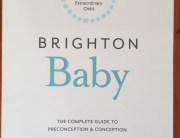 The Centre for Human Reproduction and a leading Toronto Fertility Centre has reported preliminary clinical data that suggests DHEA reduces miscarriage rates in older women with diminished ovarian reserve. DHEA supplementation may reduce the number of chromosomally abnormal embryos (aneuploidy) due to the following factors:
The Centre for Human Reproduction and a leading Toronto Fertility Centre has reported preliminary clinical data that suggests DHEA reduces miscarriage rates in older women with diminished ovarian reserve. DHEA supplementation may reduce the number of chromosomally abnormal embryos (aneuploidy) due to the following factors:
- In a small number of women who underwent preimplantation genetic diagnosis (PGD) after being treated with DHEA, researchers found lower aneuploidy rates than in women without DHEA supplementation. Unfortunately, women in need of DHEA usually have small embryo numbers and, therefore, only rarely qualify for PGD.
- There is a lower miscarriage rate in DHEA pregnancies. Since miscarriages, especially in older women, are mostly due to chromosomal abnormalities, this observation, too, suggested the possibility that DHEA may reduce aneuploidy rates.
Since the combined data sets between CHR and the Toronto center involve an adequate patient sample, they are now confident to state that DHEA supplementation significantly decreases the miscarriage rate in women with diminished ovarian reserve.
While a reduction in miscarriage rates is seen in women of all ages, the reduction is smaller in women below age 35 than in women above age 35 years, where the reduction often exceeds 50 percent. This, of course, should not be surprising as miscarriages are known to increase with advancing female age. Most of these miscarriages are, however, due to aneuploidy and this observation brings us back to this exciting evidence on the decrease in miscarriage rates after DHEA supplementation especially in older women above age 35. This strongly supports that notion that DHEA does indeed reduce chromosomal abnormalities (aneuploidy rates) in embryos.
The importance of this observation cannot be overemphasized. Since older women represent the most rapidly growing age group of women having babies, these findings may have significance far beyond those older women who require fertility treatment. Indeed, if confirmed by further studies, DHEA may become a supplement to be given, like prenatal vitamins, to all (older) women contemplating pregnancy.
For more information on DHEA use, watch this fantastic video:
http://www.cbsnews.com/video/watch/?id=4318538n
































































